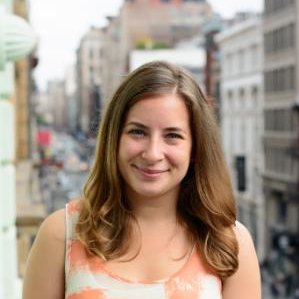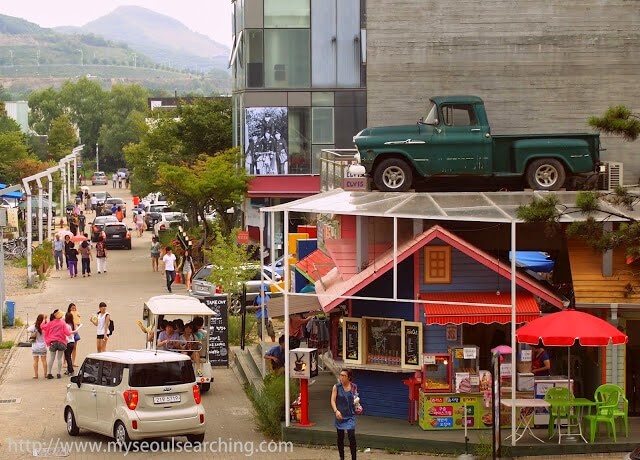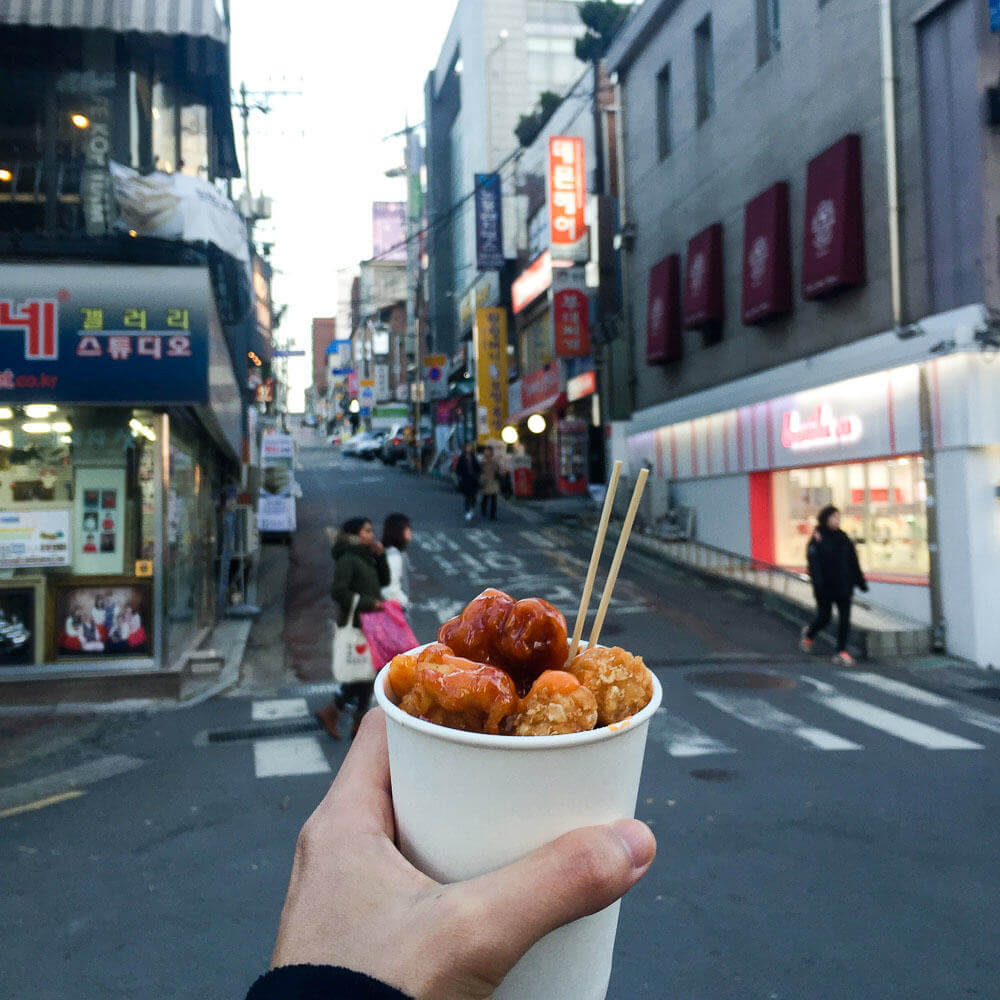Where to live in Korea: Big City vs Small City
Deciding where to live in Korea is daunting: not everyone can live in Seoul, but what is life like in the “rural” areas outside of Korea’s mega metropolises?
Amanda i s a self-proclaimed city girl, born and raised in the densely populated suburbs of New Jersey, only a hop, skip, and a jump from New York City. After spending the last year and a half in the Korean “countryside,” she’s embraced the outdoors, gained a new sense of independence, and learned to love her city’s quirky treasures.
s a self-proclaimed city girl, born and raised in the densely populated suburbs of New Jersey, only a hop, skip, and a jump from New York City. After spending the last year and a half in the Korean “countryside,” she’s embraced the outdoors, gained a new sense of independence, and learned to love her city’s quirky treasures.
If you’re searching for a job in Korea you’re probably making a few big decisions: hagwon or public school? iPhone or Galaxy? Big city or small city?
As the economic, political, and cultural hub of South Korea, Seoul is naturally the most popular destination for prospective teachers. Gyeonggi-do, the province surrounding Seoul, is also a popular place to look for jobs. While your gut instinct may tell you to live in Seoul and nowhere else, don’t be too quick to judge! There are plenty of great alternatives, such as Seoul’s many satellite cities (eg. Anyang, Suwon, Seongnam, Yongin, etc.) and the smaller cities surrounding them.

The city of Yeoju, where I live
Life in a smaller city
For a complete list of the cities in Gyeonggi-do, you can check out the subdivisions section of the Seoul Capital area wiki. Before you get worried about landing in the middle of nowhere, keep in mind that Gyeonggi-do (and Korea in general) is densely populated and very well connected.
Large satellite cities and smaller outlying cities are connected to Korea’s major cities, and to each other, by bus, subway, or KTX high-speed train, all of which are highly efficient. I live about as far out in Gyeonngi-do as you can get, and it usually only takes me an hour and 10 minutes to get to world-famous Gangnam. While some cities lack the depth of culture that Seoul offers, they will offer all of the same amenities, access to universities, and active expat communities.
It’s important to realize that South Korea is an incredibly homogenous country and that most of these cities, including Seoul, will look the same. As you travel throughout Seoul and Gyeonggi-do you will inevitably encounter the same architecture, stores, and atmosphere in cities large and small. The fun part is finding the hidden gems, and there are many! Lately, I’ve stopped going to Seoul to see my friends, and instead they come to visit me to experience a different side of Korea. Choosing a smaller city in Gyeonggi-do, or the provinces around Korea’s other major cities (Busan, Daegu, Daejeon, Gwangju), is a great way to get the best of both worlds!

A taste of Yeoju and the surrounding countryside.
Researching where to live
People often ask me what to look for when deciding where to live. Experiences and preferences vary widely, so the best thing you can do is consider what you want out of your city and make sure it has those things. A good way to find those things out is to research these things:
- Variety of Facebook groupsMost cities have expat Facebook groups, but it’s also good to find cities with groups that cater to diverse interests, such as sports clubs, language exchanges, etc.
- Historical and cultural attractionsIt’s my opinion that the more history a city has, the more likely it is to have hidden gems, attractions, and a varied culture. Try to look at tourist sites to see what kind of attractions are around. If you find that your prospective residence is a very industrial area without many cultural sites, that could be a bad sign, as that usually indicates that there will be factories, offices, coffee shops, and not much else.
- Personal blogsI try to stay away from public forums like Dave’s ESL and Waygook when it comes to finding unbiased information about Korea, as they seem to attract the naysayers, and those who think there’s no life outside of Itaewon. Try to look for personal blogs of teachers living in your prospective city; people giving thoughtful day-to-day accounts of what life is like there.
- UniversitiesA reputable university usually means culture, nightlife, and vibrancy! Everything that comes with having young people around. There will probably also be Korean language classes, language buddies, and loads of potential tutors if you’re inclined to studying Korean, or just want to make some inter-cultural connections!
Are you contemplating a move to a Korean city you can’t find much info on? Feel free to ask us a question in the comments below and we’ll get back to you as best we can.
Remember that just about every other expat in Korea has a blog, so if you’re looking for information about a city, a simple google search for blogs about that city should turn up plenty of research material.